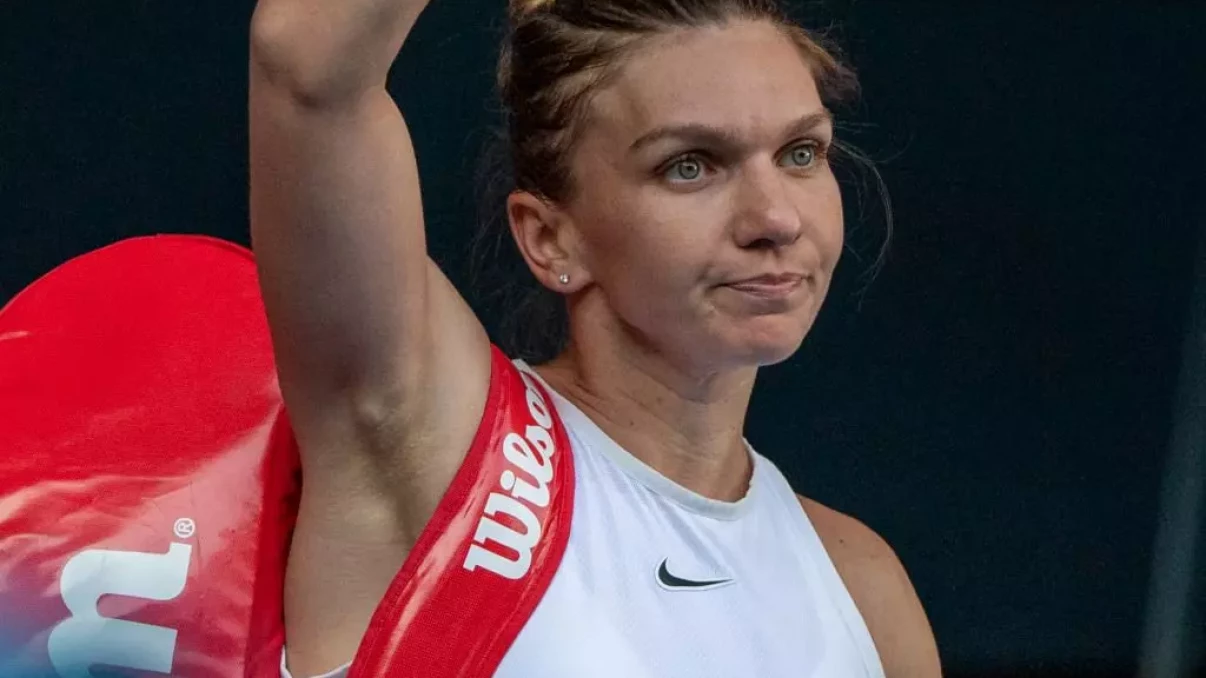Simona Halep 'shocked and disappointed' after copping four-year ban
 By
SABC Sport
By
SABC Sport
12th September 2023

Former Wimbledon champion and world number one Simona Halep has been banned for four years for two doping offences.
The Romanian, who triumphed at the All England Club in 2019, had been provisionally suspended since last October having tested positive for the blood-boosting drug roxadustat at the 2022 US Open.
She was subsequently charged with irregularities in her Athlete Biological Passport (ABP) and both charges have been upheld following an independent tribunal.
Halep, who has taken to social media several times over the past year to voice unhappiness at the time the process was taking, gave evidence at the tribunal in London on June 28 and 29.
She argued roxadustat had got into her system via a contaminated supplement but, while the tribunal accepted she had taken such a substance, it "determined the volume the player ingested could not have resulted in the concentration of roxadustat found in the positive sample".
The Athlete Biological Passport programme collates various blood parameters over time in an effort to spot any inconsistencies in the data that could indicate a possible doping offence.
The charge was also upheld, with the tribunal deciding "they had no reason to doubt the unanimous 'strong opinion' reached by each of the three independent Athlete Passport Management Unit experts that 'likely doping' was the explanation for the irregularities in Halep™s profile."
The 31-year-old, who also won the French Open in 2018 and is the highest-profile tennis player to fail a doping test since Maria Sharapova in 2016, quickly issued a statement confirming she would appeal.
"Today, a tribunal under the Tennis Anti-Doping Programme announced a tentative decision in my case," said Halep.
"The last year has been the hardest match of my life and unfortunately my fight continues. I have devoted my life to the beautiful game of tennis.
"I take the rules that govern our sport very seriously and take pride in the fact I have never knowingly or intentionally used any prohibited substance. I refused to accept their decision of a four-year ban.
"While I am grateful to finally have an outcome following numerous unfounded delays and a feeling of living in purgatory for over a year, I am both shocked and disappointed by their decision.
"I intend to appeal this decision to the Court of Arbitration for Sport and pursue all legal remedies against the supplement company in question."
Halep again criticised the International Tennis Integrity Agency, which oversees the sport's anti-doping programme, saying: "The ITIA brought an ABP charge only after its expert group learned my identity, causing two out of three to suddenly change their opinion in favour of ITIA's allegations.
"The ITIA relied solely on the opinions of these experts who looked only at my blood parameters - which I've maintained for more than 10 years in the same range.
"This group ignored the fact no prohibited substance has ever been found in my blood or urine samples with the sole exception of one August 29 positive test for roxadustat, which was present at an extremely low level and which, when considering my negative test three days prior, could only have been caused by accidental exposure to roxadustat.
"I am continuing to train and do everything in my power to clear my name of these false allegations and return to the court."
If her appeal is unsuccessful, Halep will not be eligible to compete again until October 7, 2026, when she will be 35.
Karen Moorhouse, CEO of the ITIA, defended the handling of the case, saying: "After a complex and rigorous hearing process, we welcome the independent tribunal™s decision.
"The volume of evidence for the tribunal to consider in both the roxadustat and ABP proceedings was substantial.
"The ITIA has followed the proper processes as we would with any other individual - in accordance with the World Anti-Doping Code - fulfilling our purpose and responsibility to uphold the principle of fair competition, on behalf of the sport.
"The panel recognised that appropriate procedure had been followed within the written decision."






